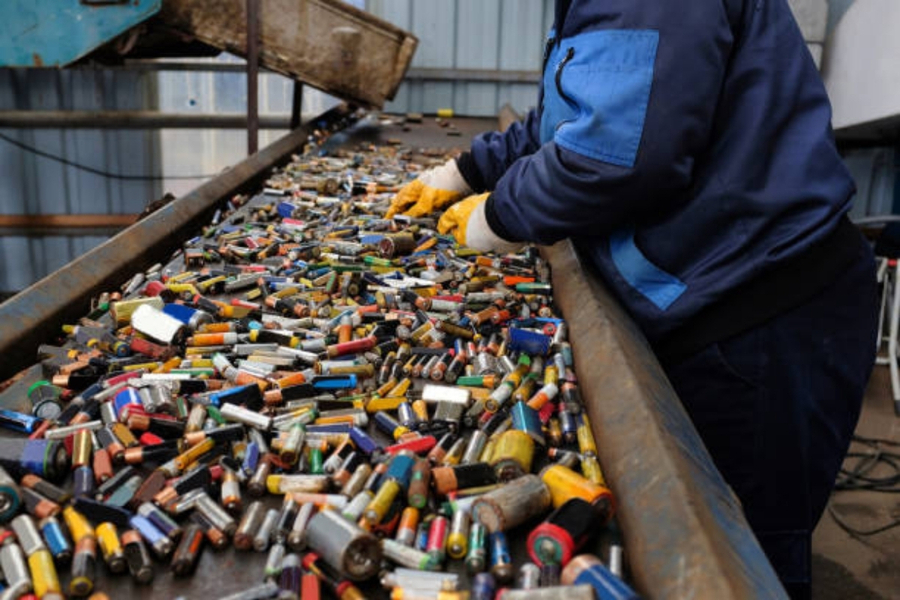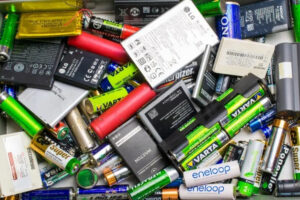The Growing Need for Battery Recycling Services
In an age where portable technology powers our everyday lives, batteries are everywhere. From smartphones and laptops to electric vehicles and backup power systems, batteries have become essential. But with convenience comes responsibility. Discarded batteries are one of the fastest-growing waste streams, and mishandling them poses significant environmental and health risks. That’s where battery recycling services step in as a vital part of modern waste management.
As more consumers and businesses become aware of the environmental impact of improper battery disposal, demand for reliable battery recycling services continues to grow. Whether you’re clearing out old household items or managing large-scale industrial waste, proper battery disposal isn’t just a good idea—it’s essential.
What Types of Batteries Can Be Recycled?
Battery recycling services cover a wide range of battery types, each with unique properties and recycling methods:
1. Household Batteries
Alkaline, zinc-carbon, and lithium batteries are commonly found in household electronics. These batteries can often be recycled through local collection programs or drop-off events.
2. Rechargeable Batteries
Nickel-metal hydride (NiMH), nickel-cadmium (NiCd), and lithium-ion (Li-ion) batteries are used in everything from power tools to laptops. Because they contain hazardous materials, these batteries require special handling and should never be thrown in the trash.
3. Lead-Acid Batteries
Used in vehicles, backup power systems, and some industrial applications, lead-acid batteries are highly recyclable. Nearly all components, including lead, plastic casing, and acid, can be reused in new products.
4. Industrial and EV Batteries
With the rise of electric vehicles and large-scale energy storage, industrial battery recycling has become a specialized and essential service. These batteries often require custom recycling processes due to their size, weight, and chemical complexity.
Why Battery Recycling Matters
Protects the Environment
Batteries contain heavy metals and toxic chemicals like lead, cadmium, and lithium. When batteries end up in landfills, these materials can leach into soil and water, polluting ecosystems and harming wildlife. Proper recycling prevents hazardous waste from entering the environment.
Conserves Resources
Many batteries contain metals like nickel, cobalt, and lithium that are expensive and environmentally damaging to mine. Battery recycling services help recover and reuse these materials, reducing the need for new resource extraction.
Reduces Fire Risks
Improperly disposed batteries, especially lithium-ion types, can ignite and cause fires in landfills or recycling facilities. Safe recycling methods reduce this risk and ensure batteries are handled with the care they require.
Supports a Circular Economy
Recycling batteries helps keep materials in circulation and supports the growing movement toward a circular economy. Instead of being discarded, batteries are dismantled, processed, and turned into new components—reducing waste and maximizing efficiency.
How Battery Recycling Services Work
Reputable recycling services follow a structured process to ensure the safe and efficient handling of used batteries:
1. Collection
Batteries are collected through drop-off locations, mail-in programs, or bulk pickups for commercial clients. Businesses and organizations can also partner with licensed recycling providers like EACR Inc. to manage ongoing battery waste.
2. Sorting and Identification
Different batteries require different recycling techniques. Batteries are sorted by chemistry and condition to ensure appropriate handling.
3. Processing and Material Recovery
Recyclers use mechanical, chemical, or thermal processes to break down batteries and recover reusable materials. For example, lithium-ion batteries may be shredded, and their components separated for reuse in new batteries or electronics.
4. Safe Disposal of Hazardous Components
Materials that can’t be reused are treated and disposed of according to environmental safety standards. Licensed recyclers ensure that all hazardous waste is managed responsibly.
Choosing the Right Battery Recycling Service
Not all recyclers are the same. To ensure you’re making an environmentally responsible choice, look for a battery recycling provider that offers licensing and compliance with federal and local environmental regulations. Choose a company that is transparent about how batteries are handled from collection to final disposal. Flexible service options, such as on-site pickups, drop-off centers, and mail-in kits, are also a plus.
At EACR Inc., we bring over 25 years of expertise in electronics recycling and battery disposal. Our licensed recycling services are trusted by individuals, businesses, and institutions nationwide. We make recycling easy, safe, and compliant.
Tips for Responsible Battery Disposal
To ensure batteries are recycled properly, never throw them in the trash, especially rechargeable or lithium-ion types. Always tape battery terminals to prevent short-circuiting during storage and transport. Store used batteries in a non-metal container in a cool, dry place until ready for drop-off. Finally, make use of local recycling programs or partner with a dedicated service provider like EACR Inc.
Final Thoughts
Battery recycling services are more important now than ever before. As the world becomes increasingly dependent on battery-powered technology, the need for sustainable disposal solutions is critical. Proper battery recycling protects our environment, conserves resources, and supports a cleaner, safer future for everyone.
At EACR Inc., we’re committed to helping individuals and businesses dispose of batteries responsibly. With licensed facilities, secure handling, and environmentally sound processes, we make it easy to recycle your batteries the right way.
Contact us today to learn more about our battery recycling services and how we can help you make a positive impact.





